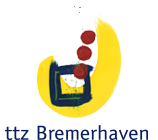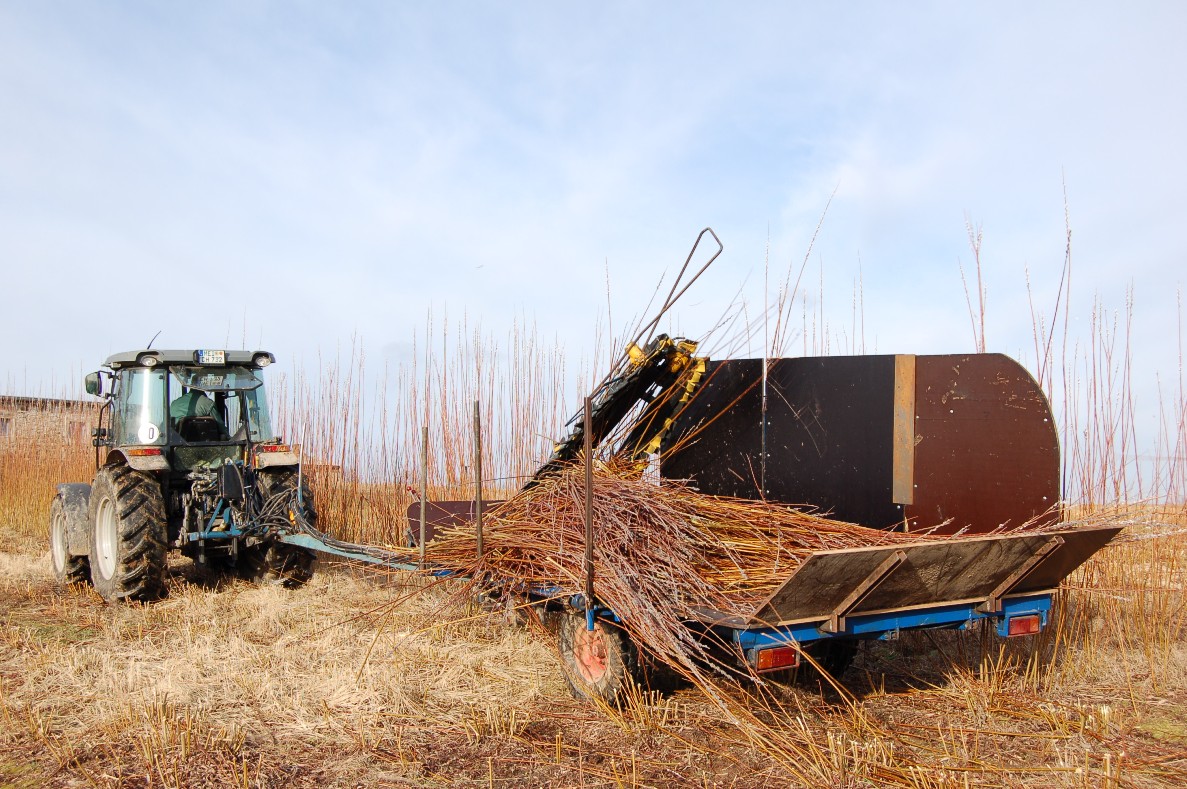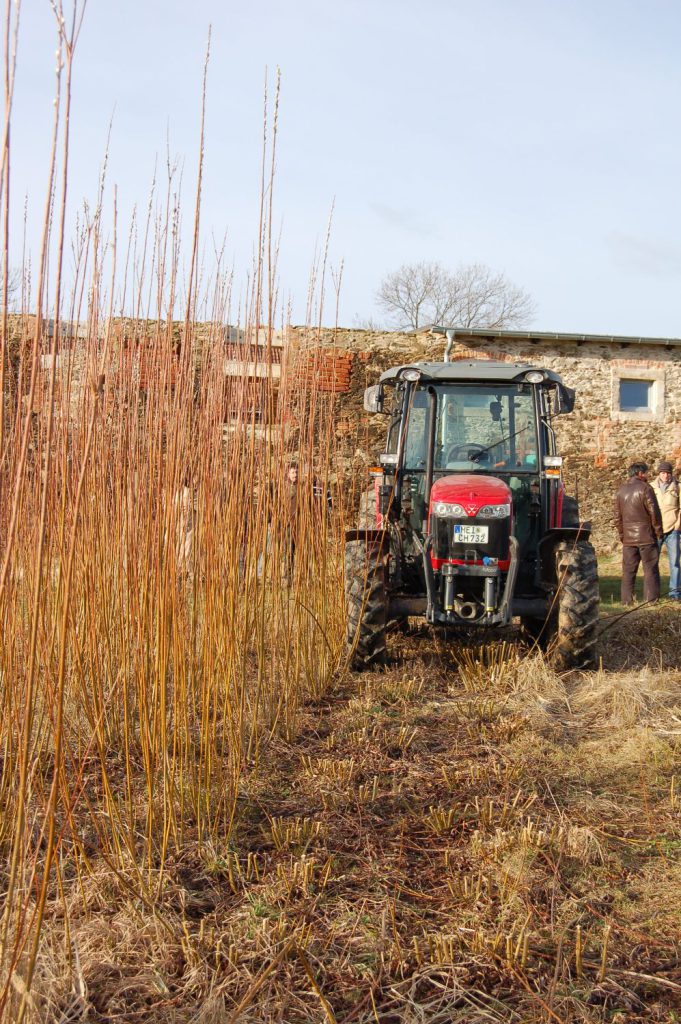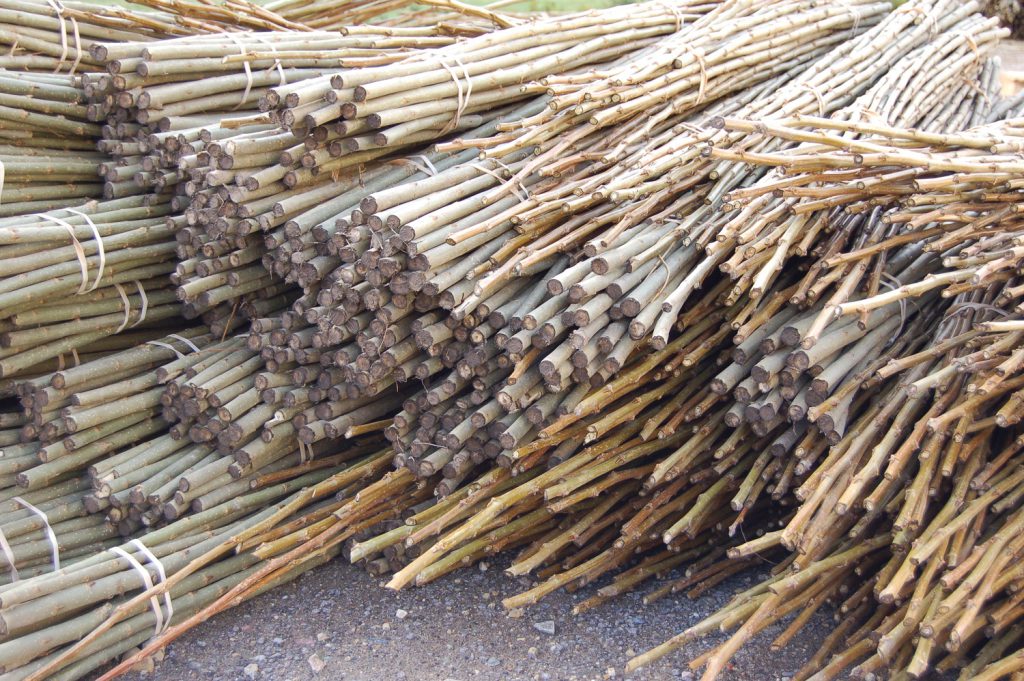EU fosters innovation for sustainable production and efficient use of wooden biomass
Bremerhaven, 21. März 2013. In the area of renewable energies, biomass is becoming more and more important. In order to answer the growing demand for biomass resources, focus is being placed on Short Rotation Coppice (SRC). This method of plantation describes the cultivation of fast-growing trees within short rotation periods with the goal of producing wood as a renewable energy source.
In a political context, biomass is increasingly being seen as an important energy resource for Europe. Production of wooden biomass from European Short Rotation Coppices is therefore indispensable. ROKWOOD is a European coordination and support action project which aims to promote the cultivation and efficient use of fast-growing tree crops in Short Rotation Coppices in the participating regions and beyond.
One of the main objectives of the ROKWOOD project is to compile an overview of the main barriers hindering the development of local biomass regions in Europe and at the same time to generate at least ten innovative project ideas which tackle these obstacles. Moreover, sources of finance for the development of innovative products and services will be identified. Additionally, the project results and findings will be disseminated via regional workshops and participation at relevant conferences in order to reach a maximum number of stakeholders in the sector.
For the purpose of knowledge transfer between the participating regions, one regional workshop per cluster will be staged in order to inform about the project, its outcomes and Short Rotation Coppices in general. Furthermore, site visits and best practice exchanges as well as staff exchanges will be some of the activities carried out within the project.
Research clusters
The project will support cooperation between the six participating European research clusters in Sweden, Spain, Germany, Poland, Ireland and the UK and thus improve research and technological development and market uptake as well as increase investment in wooden biomass production and utilization schemes at regional level.
Each cluster has at least three partners and must represent the Triple Helix concept, which means one research organisation, one SME and one public authority. The project is funded under the 7th Framework Programme’s “Regions of Knowledge” initiative, which aims to strengthen the research potential of European regions, in particular by encouraging and supporting the development, across Europe, of regional ‘research-driven clusters’ by linking universities, research centres, enterprises and regional authorities.
The participating partners are: ttz Bremerhaven, Regionale Planungsgemeinschaft Altmark and Agraligna GmbH from Germany, Mazovia Agriculture Advisory Centre/Warsaw, Gmina Zaluski and EKSPERT – SITR Sp. Z o. o. from Poland, Andalusian Institute of Agrarian Research and Training, Fisheries, Food and Organic Production, Granada Energy Agency, BIOAZUL and ASAJA Granada (a farmers’ association) from Spain, Centre for Sustainable Energy, Dorset County Council and Crops for Energy from England, SP Technical Research Institute of Sweden, Scania’s Association of Local Authorities and SalixEnergi Europa AB from Sweden as well as Dublin Institute of Technology, Biotricity Limited and Western Development Commission from Ireland.
Apart from these partners, the European Biomass Industry Association (EUBIA) has joined the consortium in order to ensure broad dissemination of the project results to a wide range of stakeholders (e.g. industry, biomass producers, research organisations).
The kick-off meeting on 22-23 January 2013 in Malaga/Spain set the tone for successful three-year cooperation within the project. The overall budget amounts to € 1.907.507 and funding totals € 1.616.608.
Further information on this topic and related topics:
- Project description: Short-Rotation-Coppice (SRC) Network Germany
- Project description: BIO-HEAT
- Project description: ROD-PICKER
- Press release: Harvesting trees at the push of a button
- Press release: Cost-efficient and sustainable bioenergy through Short-Rotation Coppice
Picture 1:
In a political context, biomass is increasingly being seen as an important energy resource for Europe. Production of wooden biomass from European Short Rotation Coppices is therefore indispensable.
Picture 2:
In the area of renewable energies, biomass is becoming more and more important. In order to answer the growing demand for biomass resources, focus is being placed on Short Rotation Coppice (SRC). This method of plantation describes the cultivation of fast-growing trees within short rotation periods with the goal of producing wood as a renewable energy source.
Download with right mouse button: “Save as…”
ttz Bremerhaven is an independent research institute and performs application-related research and development. Under the umbrella of ttz Bremerhaven, an international team of experts is working in the fields of food, environment and health.






